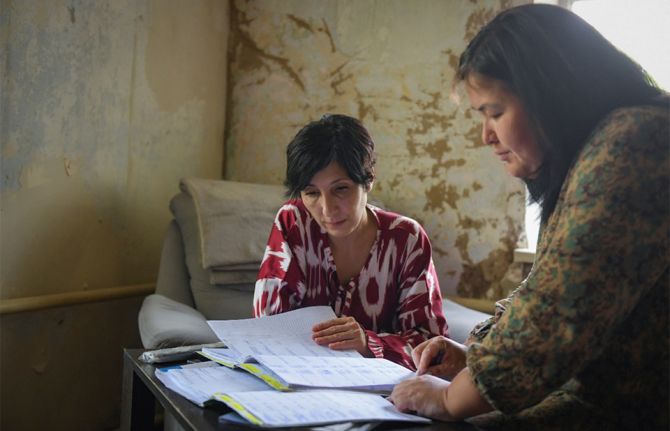
Feature Story
New monitoring centre helps tackle HIV in prisons in Latin America and the Caribbean
20 April 2011
20 April 2011 20 April 2011
Observatorio VIH y Cárceles de LatinoaMÉrica y el Caribe
Mounting an effective challenge to HIV in prison settings is a key part of the AIDS response at national, regional and global levels. To define standards for HIV prevention and treatment and the protection and promotion of prisoners’ human rights, it is important to consolidate as much data as possible about the epidemic in this environment. The newly established Monitoring Centre for HIV and Prisons in Latin America and the Caribbean is set to become the key regional repository for such vital information.
The Monitoring Centre—called the Observatorio VIH y Cárceles de LatinoaMÉrica y el Caribe in Spanish—gathers data from 23 countries which is accessible via a web site. Its primary aim is to help governments and civil society define and implement national HIV prison policies based on international standards. Up and running in Spanish since mid-February, an English language version will be launched 30 April 2011.
The United Nations Office on Drugs and Crime (UNODC) is spearheading the initiative with support from the UN Educational, Scientific and Cultural Organisation (UNESCO), the Pan American Health Organization (PAHO), the World Bank, the UN Development Programme (UNDP) and UNAIDS.
According to José Vila del Castillo, UNODC Regional Advisor, “The Monitoring Centre shows the United Nations system ‘delivering as one’. Addressing HIV in the region’s prisons has become a priority. The centre is an important tool to catalyze prison reform processes and HIV penitentiary programmes.”
Addressing HIV in the region’s prisons has become a priority. The centre is an important tool to catalyze prison reform processes and HIV penitentiary programmes
José Vila del Castillo, UNODC Regional Advisor
Providing a permanent public space for informed reflection and dialogue, the virtual centre develops methodologies for collecting, processing, analysing and validating the scientific data gleaned on what works, and how best to proceed, in addressing HIV in prisons. It will highlight existing information and encourage ongoing research. Training and technical support are also offered through reference directories, online consultations, discussion forums and virtual classrooms.
In Latin America and the Caribbean, as elsewhere, many prisoners are vulnerable to HIV due to a number of factors, including the relative lack of knowledge about the virus among this population, overcrowding, lack of access to protection and good quality health services and violent conditions.
Across the region, where data are available, several countries have higher HIV prevalence in the prison population than in the general population. For example, according to data collected by UNODC this year, in Peru there are more than eight times as many people living with HIV in prison than outside (4.03% versus 0.4%). In Bolivia the situation is even starker; the same source documents show that in nine prisons in the country, 10% of prisoners are reported as HIV positive, compared to 0.2% prevalence in the wider society.
César Antonio Núñez, Director of UNAIDS’ Latin America Regional Support Team, believes the Monitoring Centre will provide a valuable insight into the lives of a neglected population, “The Centre will really help us to know the true HIV situation in the penitentiary system, and shed light on human rights-related issues. It is probably in the environment of HIV and prisons where UNAIDS’ commitment to being ‘the voice of the voiceless’ is most needed and appropriate.”



